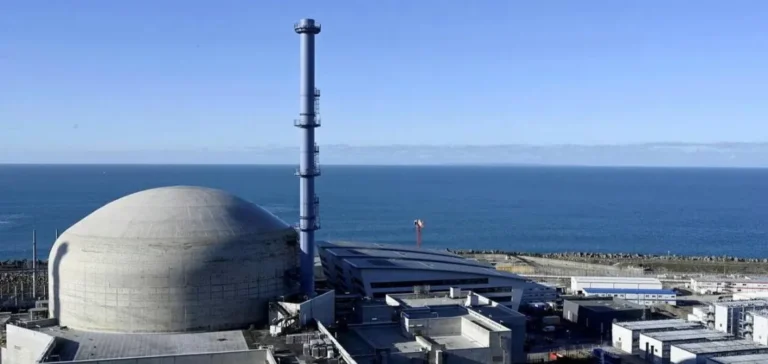Électricité de France (EDF) has postponed to 17 October the return to service of the Flamanville EPR, which has been offline since mid-June. This decision follows inspection work on a valve in the primary circuit, the state-owned energy company said on its technical communication platform.
Full commissioning of this new-generation reactor, which was connected to the national grid at the end of December 2024, was initially expected by the end of the summer. EDF revised this timetable in August, targeting full power “before the end of autumn”. The latest adjustment comes as technical verification operations continue, notably on safety equipment.
Technical issue detected during tests
The reactor had already been shut down since 19 June as part of commissioning tests, a standard step for any new nuclear installation. On 2 July, EDF decided to extend the outage to carry out work on three valves located at the top of the pressuriser, a key component that maintains the primary circuit at 155 bar.
Two of these valves showed sealing defects that did not meet technical requirements, according to findings made during the tests. EDF stated that the ongoing operations aim to ensure the required safety level before any reactor power ramp-up.
A long-running and costly project
Flamanville 3 is the first nuclear reactor to be brought into service in France in 25 years. Launched in 2007, the project has faced a series of delays and cost overruns. Initially estimated at €3.3bn, the total cost now stands at €22.6bn ($23.81bn), including financing costs, according to an estimate published in January by the Cour des comptes.
This budget overrun is attributed to technical contingencies, strengthened regulatory requirements and defects identified on several critical components. EDF continues to target commercial operation of the reactor in the coming months, without setting a new precise deadline at this stage.






















